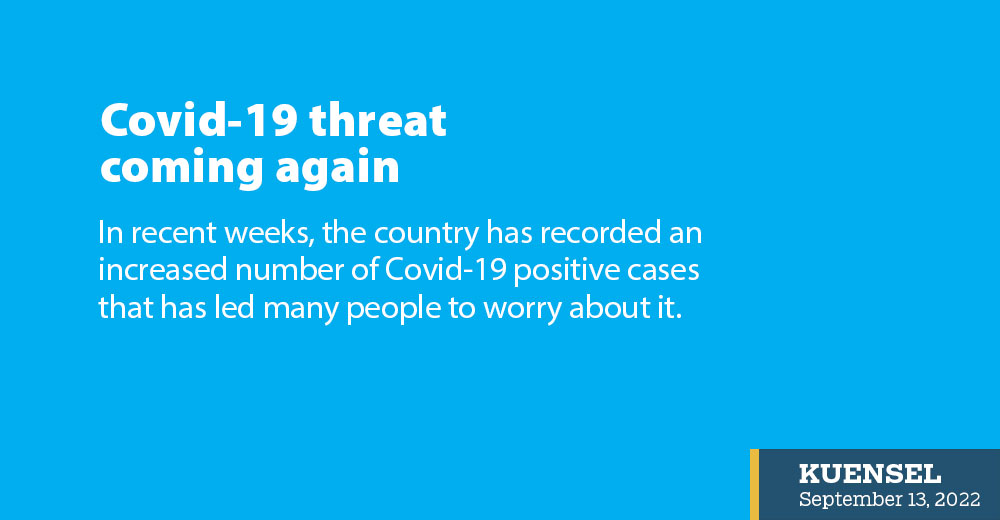Nima Wangdi
In recent weeks, the country has recorded an increased number of Covid-19 positive cases that has led many people to worry about it.
But health experts say that people should not be concerned about it.
Going by the health ministry’s weekly record, there were 186 positive cases this week. The figure was 157 the week before.
Thimphu, Chukha, and Paro dzongkhags reported the highest number of positive cases so far.
Member of the technical advisory group and the head of the royal centre for disease control, Dr Sonam Wangchuk, said that there is a “slight rise” in the Covid-19 positivity rate.
A cause for concern?
The Omicron B.5 variant is in circulation worldwide and by now has infected most of the people in the country.
The number of cases is expected to decline in a week’s time, as more people will be immune to the variant according to Dr Sonam Wangchuk.
“Globally, all the countries are seeing a decline in the number of cases and the same thing should happen in our country,” Dr Sonam Wangchuk.
He said about 40 percent of the infected are asymptomatic and that they don’t know they are infected. He said the rest, who are symptomatic, are also having very mild symptoms like a sore throat that are almost unnoticeable. “There are no Covid-19 patients who require hospitalisation for now.”
Health officials said that not many people are coming for tests but they see an increase among those who come for screening. It is expected.
The people are now raising concerns about the country readying to open international borders.
The same variant is not a serious concern
Dr Sonam Wangchuk said it is the same variant that has been circulating and Bhutan already has it.
“If not for the new variants, we should not be worried about the same variant importation. Everyone entering the country is also tested,” he said.
Under the current test-and-go protocol, anyone arriving in the country has to undergo RTPCR tests. Those testing negative are let go after the test results are declared.
People testing positive are put under five-day home or facility isolation.
Who monitors?
No one does.
People testing positive also do not show high viral loads, according to Dr Sonam Wanghcuk. This is because they have already been infected before or vaccinated.
Today, many people in towns and public places don’t wear masks except in educational institutions and hospitals.
Dr Sonam Wangchuk said that it is important that people wear facemasks diligently, especially in public places, and at crowded places like meetings and celebrations.
“It should be good if the people make it a habit, however,” he said.


